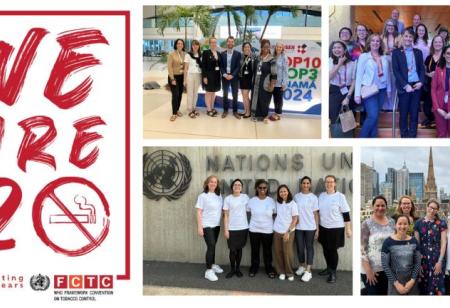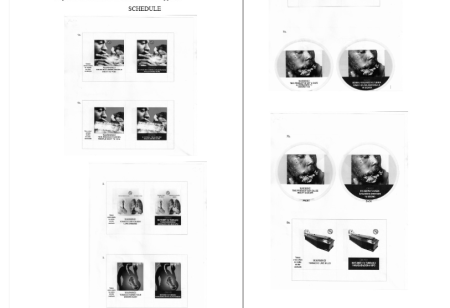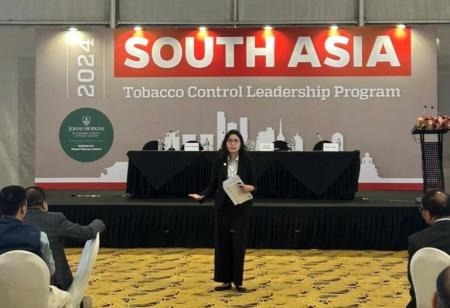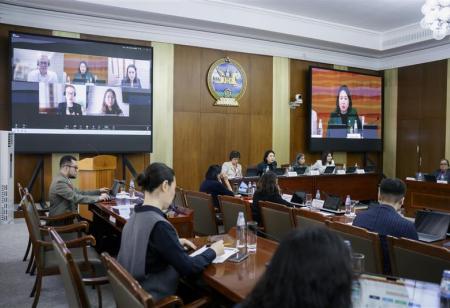
High Court of South Africa dismisses challenge against lockdown prohibition on the sale of tobacco products - 3 September 2020

On 26 June 2020, the High Court of South Africa rejected an application lodged by the Fair-Trade Independent Tobacco Association (FITA) against the government’s regulations prohibiting the sale of tobacco products during a COVID-19 lockdown period.
The measure
In order to curb the spread of COVID-19 and govern the lockdown period, the Minister of Cooperative Governance and Traditional Affairs (the Minister) promulgated regulations under s 27(2) of the Disaster Management Act (2002) limiting sales of goods to products categorised as ‘essential’ or ‘permitted’. Tobacco products were excluded from these categories, and regulation 27 of the level 4 regulations and regulation 45 of the level 3 regulations (together ‘the regulations’) provided that the sale of tobacco products, e-cigarettes and related products was prohibited during Level 4 and Level 3 lockdown respectively. (The sale of tobacco products was also prohibited under level 5 lockdown, when only essential goods could be sold).
FITA’s arguments
FITA challenged the prohibition in the High Court and sought an order declaring that cigarettes and tobacco products were essential goods and that the regulations outlawing the sale of tobacco products were invalid. FITA argued that the Minister’s decision was not rationally related to the purpose for which the power was given. It argued that:
- the Minister’s announcement was at odds with a prior announcement by the President stating that tobacco sales would be permitted during Level 4 lockdown
- the risk of COVID-19 associated with tobacco use or smoking did not justify the total prohibition of cigarettes and tobacco sales
- there was insufficient public consultation on the decision
- the Minister had failed to consider relevant factors
- South Africa was one of only two countries that had declared tobacco products non-essential
- the decision was ultra vires
- tobacco products were essential goods because they were addictive
The Court rejected all of these arguments and declared that the Minister’s decision was lawful and valid.
The Court’s decision
Prior announcement
The Court first dealt with FITA’s argument that the regulations promulgated by the Minister appeared to be at odds with the President’s prior announcement on permitting tobacco sales. The Court accepted the Minister’s evidence that the President’s statement was a mere ‘proposal’ which was still subject to further consideration. The final decision to impose a ban on the sale of tobacco products was made after careful consideration of public comments and submissions, despite the President’s initial announcement.
Assessment of evidence
The Court then rejected FITA’s challenge on the rationale for the tobacco prohibition. The primary reason advanced by the Minister for the ban was to ‘protect human life and health and to reduce the potential strain on the healthcare system’. The Minister noted that South Africa was a developing country which had a shortfall of essential healthcare resources required to address the pandemic. This placed a duty upon her as the Minister to take measures to prevent unnecessary strains on these limited healthcare facilities to ensure COVID-19 patients have access to them. She also submitted evidence of various expert reports and findings, relied upon which she pointed out that smoking was a risk factor both for transmission and progression of COVID-19, with smokers more likely to develop severe symptoms and require medical facilities when affected by the virus compared to non-smokers. In turn, FITA argued that the materials referred to by the Minister were inadequate and there wasn’t a conclusive link between smoking and COVID-19 progression.
The Court held that although the medical materials were still developing and not conclusive, they had provided a sufficient rational basis for the Minister to impose the ban to ensure the already fragile healthcare system was not overwhelmed even further. As long as the means used were rational, the Minister’s evidence did not have to be infallible. Even if it were possible for the Minister to have tendered less restrictive measures, it was not the Court’s role to substitute the executive’s decision for a more preferable or appropriate one. The Court applied the same reasoning when rejecting FITA’s contention that the ban was not effective given that not all smokers ceased smoking as a result of the ban, and ruled that there just needs to be a rationally objective basis justifying the Minister’s conduct. In this case, this hurdle was overcome and the decision was thus rational.
Public consultation
The Court rejected FITA’s contention that the Minister’s failure to conduct proper public consultation process before making the decision indicated irrationality in the decision-making process. The rationality enquiry only required that the enactment of the regulations was rationally related to achieving their purpose.
Consideration of relevant factors
The Court rejected FITA’s statement that the Minister failed to consider other relevant factors such as the economic impacts of the prohibition, the potential health and psychological impact on smokers as well as the illicit trade in cigarettes.
- On economic impacts, the Court accepted the Minister’s submission that the impacts were considered but they were outweighed by the harm posed to life and the healthcare system by allowing the continued sale of tobacco products.
- On the psychological effects, the Minister provided details of medical facilities available to assist quitters in dealing with those effects.
- On the illicit trade of cigarettes, the Court held that the Minister only needed to show that the ban could rationally achieve the intended objective, and not whether the means chosen were the most effective or the best means possible. The Minister’s objective was not to stop every smoker from smoking, but to prevent possible devastating burdens on the healthcare system. Therefore, the Court was satisfied that illicit trade in tobacco products did not negate the rationality of the measure.
Practice of other countries
FITA argued that the prohibition was unnecessary, ill-conceived and unwarranted because South Africa was one of the only two countries around the world that have banned tobacco sales in response to the pandemic. But the Court supported the Minister’s contention that decisions of other countries did not impact the firm rational basis underpinning the ban, which was made with reference specifically to South Africa’s context and its preparedness to deal with COVID-19.
Legal basis for ban
The Court held that the principle of ultra vires should not be invoked. FITA stated that the prohibition in regulations 27 and 45 was beyond the Minister’s power because s 27(2) of the Disaster Management Act (2002) did not specially empower or authorise the Minister to make regulations concerning the suspension of the sale of tobacco products. The Court rejected this contention because, given the unprecedented and unpredictable nature of COVID-19, the government had to take measures as necessary to protect the public. The legislature could not possibly have contemplated every sort of disaster that might occur and conferred specific powers on the Minister relevant to all conceivable disasters. As a result, s 27(2) was enacted wide enough to empower the Minister to promulgate the regulations and the prohibition was not ultra vires.
Definition of essential goods
Finally, the Court rejected FITA’s argument that tobacco-related products should be categorised as essential goods because they are addictive. The Court held that ‘essential goods’, when being interpreted in context and in light of the purpose of regulations, did not cover tobacco products. The categories of goods determined to be ‘essential’ only included food, cleaning and hygiene products, as well as medical and basic goods – all of which shared the common quality of being necessary for survival or for functionality. Tobacco products did not fall into the same category simply because they were addictive, the Court ruled.
The Court’s conclusion
The Court dismissed FITA’s application and ruled that the sale of tobacco products would remain banned under the government’s lockdown regulations.
South Africa moved to level 2 lockdown on 18 August 2020. Under these less stringent lockdown rules, the sale of tobacco, e-cigarettes and related products is no longer prohibited as of the date of this publication.





